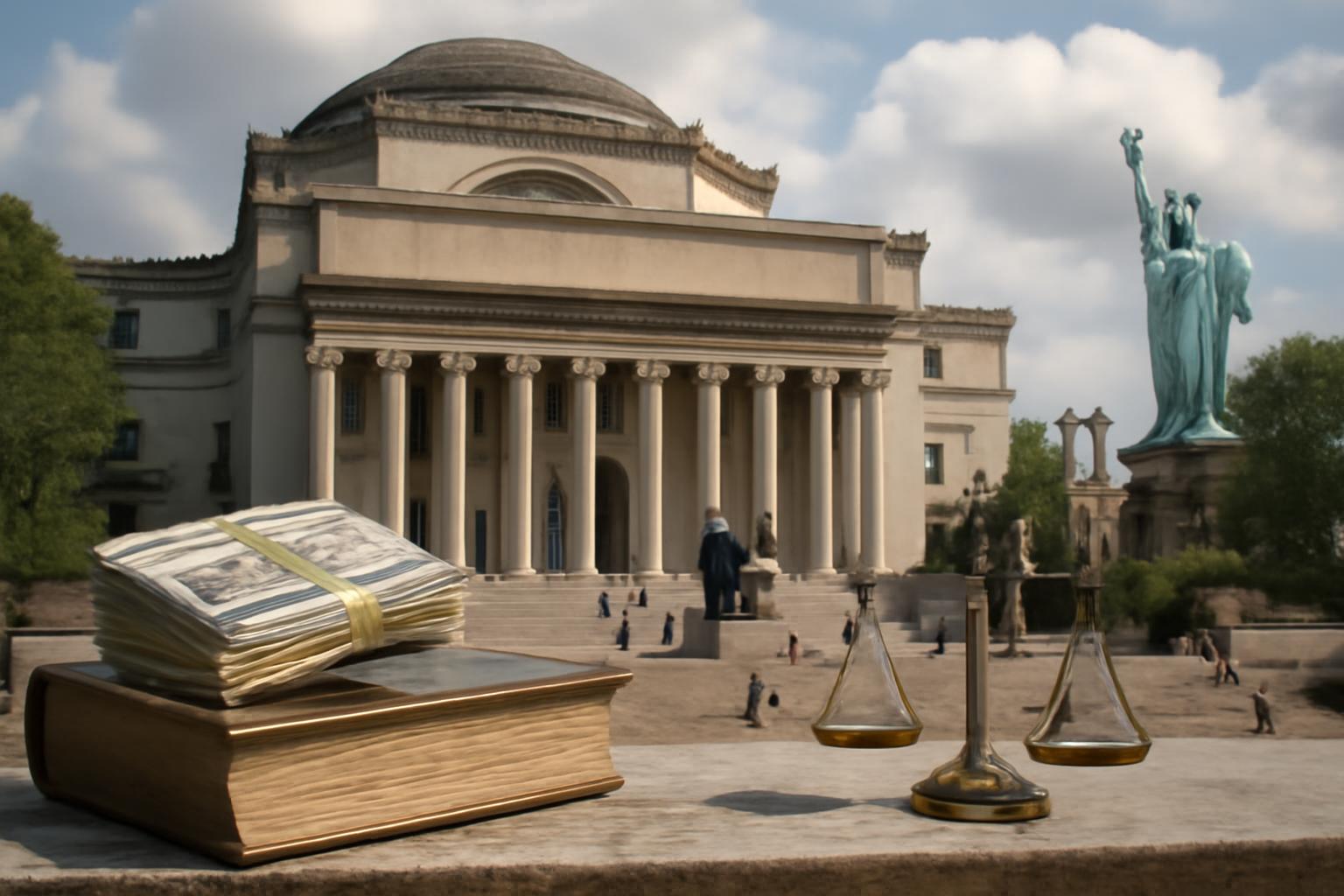Columbia University reopened after the summer break under a deal with the administration to reclaim more than $400 million in frozen federal research funds. In exchange, the university agreed to tougher campus-demonstration rules, the elimination of several diversity and equity programs, a reduction in admissions of international students, and the granting of immigration authorities access to some data. Yet funds for projects not aligned with Republican priorities were not released, notably leading to the shutdown of transgender and LGBTQ research. Critics such as history professor Joseph Howley argue that these concessions reveal governance by financiers rather than by scholars and will hinder the recruitment of top talent, while biophysicist Barry Honig contends that a quick fix was necessary but warns against overreliance on private funding. Students are divided—some hopeful that many will do the right thing, others anxious about threats to free speech and academic independence—with new student Laura remaining optimistic about the university’s direction. The long-run consequences of this arrangement remain uncertain.
What is at stake here goes far beyond a sum of dollars or a single policy patch. This is a test of the conditions under which knowledge is produced. If the allocation of research funds can be bent to the will of political power or private financiers, the very mechanism by which truth emerges—through trial, error, and the unintended consequences of open inquiry—will be bent to serve expediency. A university should be a place where ideas compete, including those that are controversial or unpopular, and where the willingness to pursue truth is not hostage to the temperament of the moment or the balance sheet of a donor.
The claim that expediency demands concessions to financiers or to the state confuses means with ends. The end of higher learning is not to demonstrate loyalty to a current political agenda or to satisfy the preferences of any particular funding source, but to understand the world more clearly and to train minds capable of thinking beyond immediate fashion. When research is funded or obstructed in proportion to alignment with a partisan priority, the process of discovery is corroded. The price system that coordinates countless plans and novelties in a market society—though imperfect—rests on the principle that dispersed knowledge can guide action better than any central directive. To substitute a few central interests for that dispersed knowledge is to invite a form of planned ignorance.
Private funding, for its part, is not a universal remedy, for it can also become a vehicle of influence, steering inquiry toward the preferences of the few who possess capital. Yet even this danger must be weighed against a state-anchored control that pretends to know which questions deserve pursuit. The truth is that neither government fiat nor private coercion can replace the creative tension of diverse, decentralized actors pursuing unknown ends. What is needed is a framework that protects academic freedom while allowing donors and public bodies to support inquiry without turning researchers into appendages of political or financial power.
Columbia—and universities more broadly—would do well to insist on safeguarding the independence of inquiry: clear protections for academic freedom, rules that prevent political or financial pressures from dictating what may or may not be pursued, and avenues for dissent to flourish without fear of reprisal. If there is any lesson to be drawn from this episode, it is that the health of a university depends not on placating the momentary wind but on preserving the environment in which spontaneous order can arise from the peaceful, often contentious, search for truth. Laura’s optimism is admirable, but the most responsible stance is to defend an open, undecided, and unfettered pursuit of knowledge, for only in such freedom can the academy serve as a reliable compass in an uncertain world. In the end, hurried settlements that tether academic work to political or financial convenience threaten not merely a grant’s balance sheet but the very credibility and future of the scholarly enterprise.
